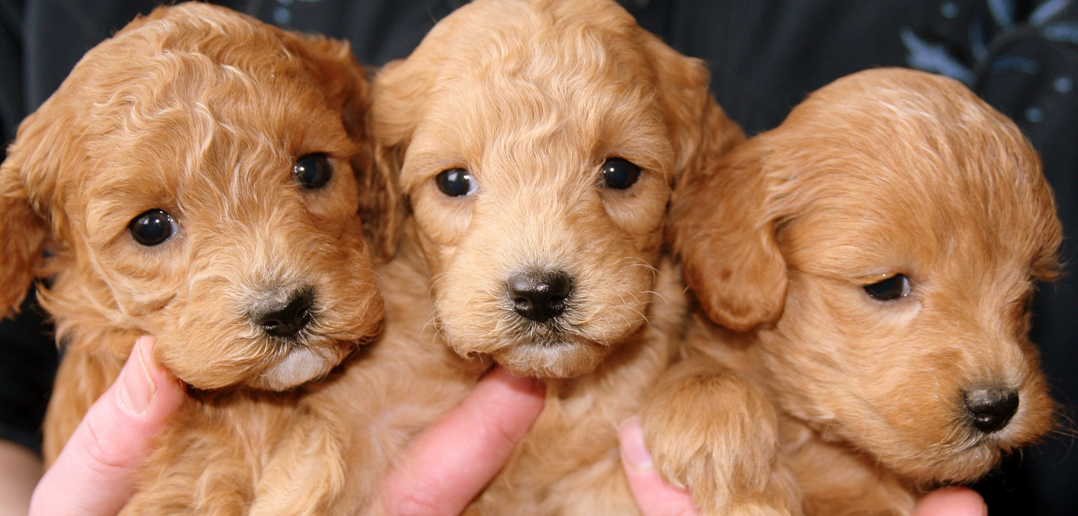Anyone can put two dogs together and let them breed, and in turn call themselves a ‘breeder.’ However, being called a reputable breeder encompasses far more than that. You won’t find a reputable breeder trying to sell their puppies to local pet stores or advertising in classified ads. A good breeder doesn’t generally need these gimmicks.
Instead, reputable dog breeders rely on the quality of their dogs and word of mouth. Dog breeding is a practice that should be done with a sense of pride, a genuine love and concern for the animals, and a feeling of happy fulfillment for themselves, for their dogs, and for the puppies they place into loving homes.
Choosing a reputable dog breeder is not just about finding a puppy, it’s about ensuring your new furry family member has just the right start in life while supporting ethical practices. With over 2 million puppies bred annually in puppy mills under inhumane conditions, choosing a responsible breeder helps combat that issue and promotes better welfare for dogs everywhere!
So once you’ve decided that a purebred dog is right for you, how do you go about the overwhelming task of choosing the perfect breeder? Well, there are several key things to look for.
What Makes A Breeder Reputable?
A reputable breeder is someone who prioritizes the health and well-being of their dogs over profit. They carefully plan their breeding programs to improve the breed, follow ethical guidelines, and ensure their puppies go to loving homes.
Key traits include:
- Thorough health testing for genetic disorders.
- Transparency about their breeding practices.
- A genuine commitment to the breed, often shown through involvement in breed clubs or rescue efforts.
Questions to Ask and Steps to Vet a Breeder
1. Who is the breeder?
It’s very important to really find out who the breeder is. One way to do that is by checking references. IF the breeder is unable to provide written references, you should move on. Snoop around a bit. Talk to other breeders, rescue groups, veterinarians . . . anyone who can give you some information about the person behind the puppy.
Look for breeders who are affiliated with respected organizations like the American Kennel Club (AKC) or the Canine Health Information Center (CHIC). Membership in these programs often indicates a commitment to high standards.
2. Will you receive in-depth health information?
A reputable breeder should provide you with a health check, which tests the lineage for known and testable genetic disorders. The breeder should be familiar with the health line of several generations. As a result, they should provide you with a health guarantee for a certain time period.
Modern breeders often use tools like Embark or Wisdom Panel to conduct advanced DNA testing. Ask to see health certifications for the puppy’s parents, such as OFA or PennHIP evaluations, which assess for common issues like hip dysplasia.
3. Do they seem more concerned about the fit of the placement or the size of the fee?
A reputable breeder should encourage you to select a puppy with the temperament and personality that is compatible with you and your family. Do not let the breeder convince you that “this one” is the one for you. A good breeder will only produce liters after they have buyers.
Reputable breeders often interview potential buyers or require an application to ensure the puppy is going to a suitable home. They may also ask you to sign an adoption contract, which could include spay/neuter agreements or a clause requiring you to return the dog to them if you’re unable to care for it.
4. Is the picture they paint rosy or realistic?
The breeder should be honest about the dog’s characteristics! They should tell you both the good and the bad points concerning the breed and the specific puppy you’re considering. Different dog breeds have unique characteristics that are traditional in their breed, so it’s important to educate yourself – which can also let you know if the breeder knows what they’re talking about when they speak about the dog’s specific breed.
Educate yourself using breed-specific resources or forums. This will help you gauge whether the breeder is genuinely knowledgeable about their dogs or just trying to sell you on unrealistic expectations.
5. Are there any restricted zones on site?
Check out the facilities. Make sure the breeder is keeping dogs in a clean and healthy environment. Ask to see where they dogs are kept! If the breeder insists on only bringing the dog to you, steer clear.
In today’s world, many breeders offer virtual tours if you can’t visit in person. Whether virtual or in-person, ensure the dogs are raised in clean, spacious environments and observe how they interact with the breeder.
6. How active is the dog breeder in the breed community?
Most often you’ll find that a good, reputable breeder is involved in either showing, performance, local clubs, or rescue efforts. An active breeder is a good sign that they really care about the breed.
Look for evidence of breeder involvement in breed-specific clubs, dog shows, or rescue organizations. These activities show a commitment to improving and preserving the breed.
The Role of Responsible Breeding in Pet Welfare
Responsible breeders are the guardians of their chosen breeds. They work to eliminate hereditary diseases, preserve positive traits, and ensure their dogs are well-adjusted. Supporting these breeders helps reduce the demand for unethical practices like puppy mills and irresponsible backyard breeding.
Adoption Alternatives: Rescues and Shelters
Remember, being a responsible dog owner starts right from the start. And, if a pure-bred dog isn’t particularly important, please consider rescuing a puppy from the pound.
Rescues and shelters offer wonderful dogs, often at lower costs. Many breed-specific rescues also exist for those who have their hearts set on a particular breed. Visit trusted sites like Petfinder or Adopt-a-Pet to explore options.
Rescue dogs are a breed all their own!
Tips for a Successful Puppy Search
Choosing the right breeder or rescue takes time and effort. Here are some tips:
- Be patient. Don’t rush the process; finding the right puppy is worth the wait.
- Educate yourself. Research the breed and prepare questions for the breeder.
- Consider the commitment. Owning a dog is a long-term emotional and financial investment.
Final thoughts . . . Choosing a good breeder should be more involved than jotting down a number you saw in a newspaper or just clicking a result you saw online. Educate yourself as much as possible about the breed, and the breeder, you’re considering. Prior to meeting with a prospect, jot down questions, know the breed, and be patient. Choosing the right puppy is not something you should rush!
By choosing a reputable breeder or adopting from a rescue, you’re taking the first step toward responsible pet ownership and ensuring your new furry friend will have a happy, healthy life.
Resources:
- American Kennel Club (AKC) Marketplace
https://marketplace.akc.org/ - Canine Health Information Center (CHIC)
https://www.ofa.org/chic-programs - Embark DNA Testing
https://embarkvet.com/ - Wisdom Panel DNA Testing
https://www.wisdompanel.com/ - Orthopedic Foundation for Animals (OFA)
https://www.ofa.org/ - PennHIP (Hip Dysplasia Testing)
https://antechimagingservices.com/hip/ - Petfinder
https://www.petfinder.com/ - Adopt-a-Pet
https://www.adoptapet.com/




